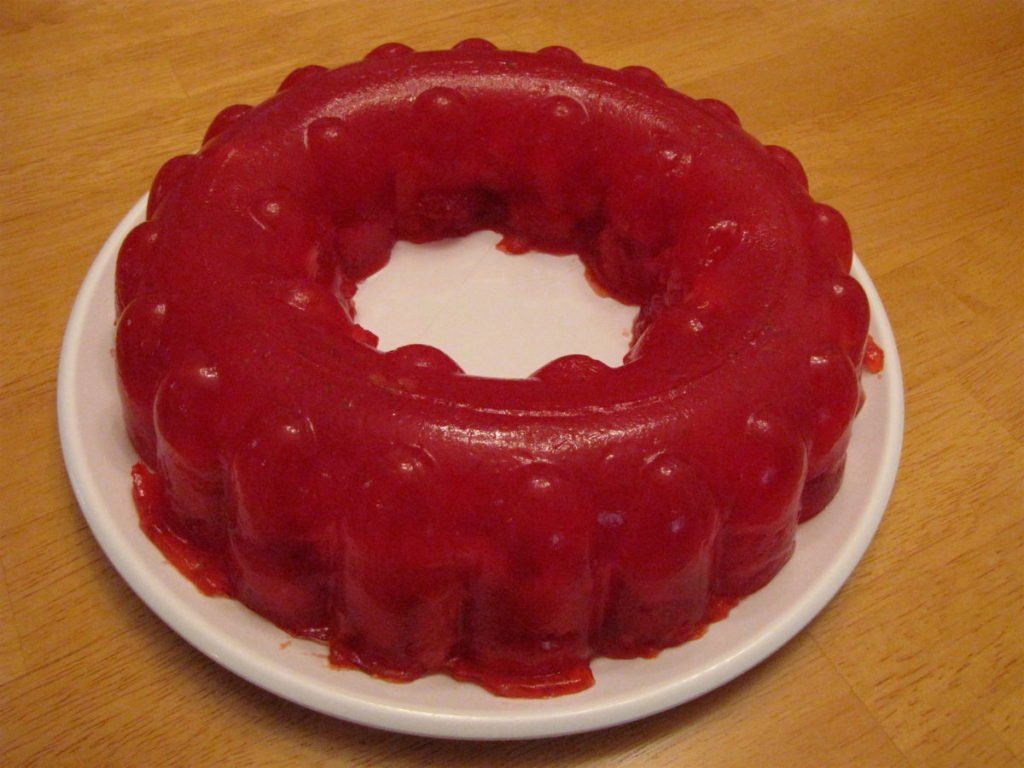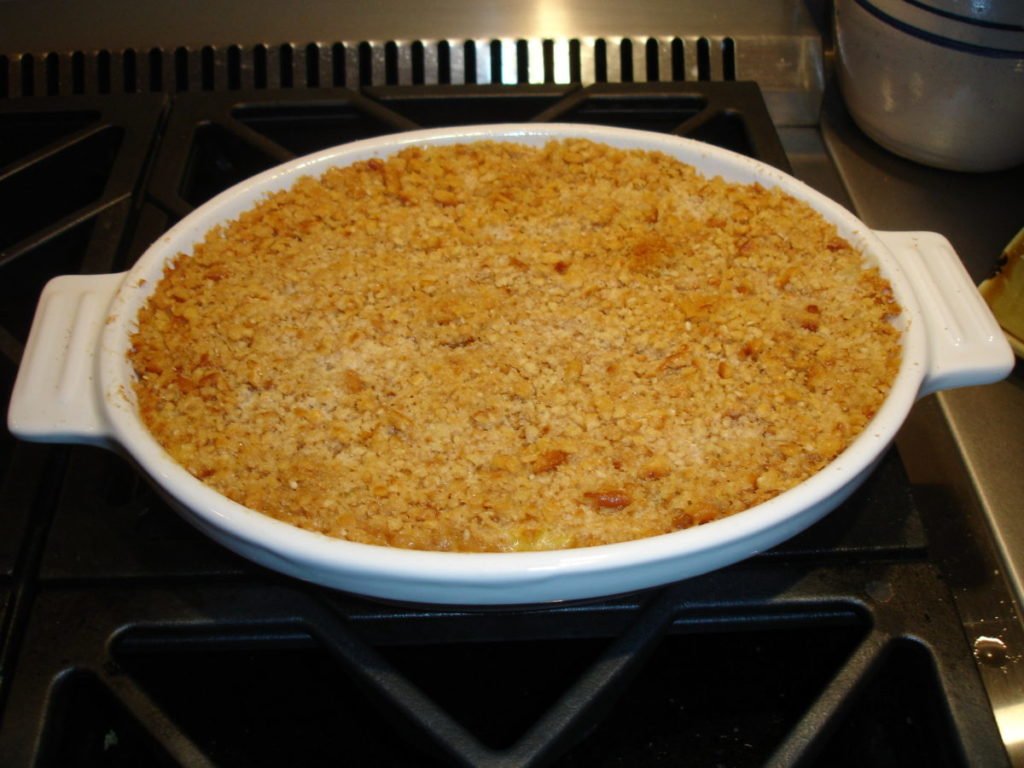Catherine Pritchard Childress is the 2nd place winner of Streetlight’s 2022 Essay/Memoir Contest
Offering food as a form of comfort for those in mourning is as much a part of my Appalachian upbringing as Vacation Bible School and dinner on the grounds. Where there is death there will be cream soup casseroles and fried chicken, jugs of sweet tea and deli trays. Condolences unaccompanied by a Pyrex dish (name written on masking tape and secured to the bottom) or a lidded Rubbermaid container (“Honey, I don’t need it back”) are lacking—or so we’ve been raised to believe—lacking thought, lacking sincerity, lacking any means by which the recipient might determine who values them most AND least. In this way, a casserole is never just a casserole.
Food and grief have been linked since Ancient Egyptian and Roman funeral feasts—the practice of preparing and offering food as an expression of sympathy remains common across cultures and religions. And though the types of food offered, the specific reasons for presenting them, and yes, even the ways they are received and interpreted differ among cultural, regional, and religious groups, the spirit of community and human connection in which food is given is universal. But how are we to express sympathy—how are we to receive it at a time when the price of human connection may be, will be in many cases, more death—more cause for comfort. How do we grieve if not with a casserole?

Late in the evening of March 11, 2020, my stepfather, a well-respected and well-liked business owner in our small community, died unexpectedly. Early in the morning of March 12 that community began to arrive—one-by-one, as couples, in clusters—at my mother’s door, each bearing a dish or a bag that we, while writing thank you notes, inevitably equated with the level of esteem in which the bearer held our dead, holds us. And in which we DID find solace. Solace whipped high in the meringue of my best friend’s signature coconut cream pie, its construction so laborious that I’ve only tasted it four times—when I brought each of my three babies home from the hospital and that morning, for breakfast, while I watched my mother grieve; comfort in a cardboard box filled with pulled pork, BBQ beans, coleslaw, and buns delivered by a coworker because she thought the table too bare at her earlier visit; even comfort from the Corningware left on the side porch—the contents of which we threw out when no one could identify them—because we knew that those mystery ingredients were assembled as a demonstration of concern, respect, perhaps even love.
Something else arrived that morning as quickly as the Jello molds and congealed salads . . . the news: the news that March Madness had been cancelled and Major League Baseball’s Spring Training; the news of Disneyland’s closure and Walt Disney World and The Smithsonian and Broadway and The National Zoo and every school in Kentucky and Maryland and Michigan and New Mexico and Ohio; news that the National Basketball Association suspended their season and The National Hockey League and Major League Soccer; news that COVID-19 or “The Corona Virus” was/is spreading so rapidly that all of these closures, suspensions, and cancellations (as well as the ones that kept coming and coming and coming) were necessary in order to keep people away from other people, in order to stop, at least to slow, the transmission of a virus that lives in the air, on surfaces, in droplets, in the six feet of space surrounding an infected person. Six feet.
There were fourteen dishes on the table in my mother’s twelve by twelve kitchen that morning—dishes carried in by eight people, eight people who had contact with x other people, eight people who hugged and patted and stroked my mother. My daughter. My sister. Me.
Were those eight people busy in their own kitchens when the CDC urged all Americans to maintain social distance? We were, all of us, unfamiliar with the term, yet most of us understand how germs of any kind are passed from person to person. Did they believe that, like fashion trends, COVID-19 wouldn’t arrive in our little town until it’s on its way out? That their faith renders them immune?
I asked myself these questions many times throughout the traditional three-day mourning period; struggled with my desire to care for my mother and my instinct for self-preservation; resisted the urge to lash out at the well-meaning invaders of my mother’s space; avoided common areas; insisted upon hand sanitizer when people entered; feared we would run out; washed my hands until they cracked and bled; begged my mother to put a note on the door, to say thanks, but no thanks, to avoid unnecessary contact, not to accept visitors, not to shake hands, not to eat the casseroles.

But something about, no, nothing about a nod or an elbow bump—in jest, my daughter suggested a curtsey—can express the things we want to convey to a person when they’ve lost the person they love most in the world. We don’t want to shout “I’m sorry for your loss” from a safe six feet away; don’t want to leave a grieving widow without a tissue to wipe her tears when we happen to have one in our purse. And the widow doesn’t want to refuse the tissue. She is looking for a hand in which to rest her own. She needs to fold into a hug if only for the possibility that the hugger’s arms might bear a portion of her sorrow for a moment.
I know that the idea of placing a “Thank you for your concern, but due to the current COVID-19 threat, I am not accepting visitors at this time” sign on her door is, to my mother, tantamount to renouncing her Appalachian citizenship. I realize that for some visitors, the answers to the questions I kept asking, the questions I continued to ask while watching news coverage of crowded Spring Break beaches or listening to neighbors respond to warnings with defiance, is yes. Yes, they do doubt the seriousness of this virus. Yes, they are arrogant and inconsiderate. Yes, they are irresponsible. The answer I’m searching for is also no. No, we will not fear when our faith demands otherwise. No, we will not dismiss our carefully preserved traditions. No, we will not leave this woman to grieve alone. We will not leave her table empty.

Share this post with your friends.

